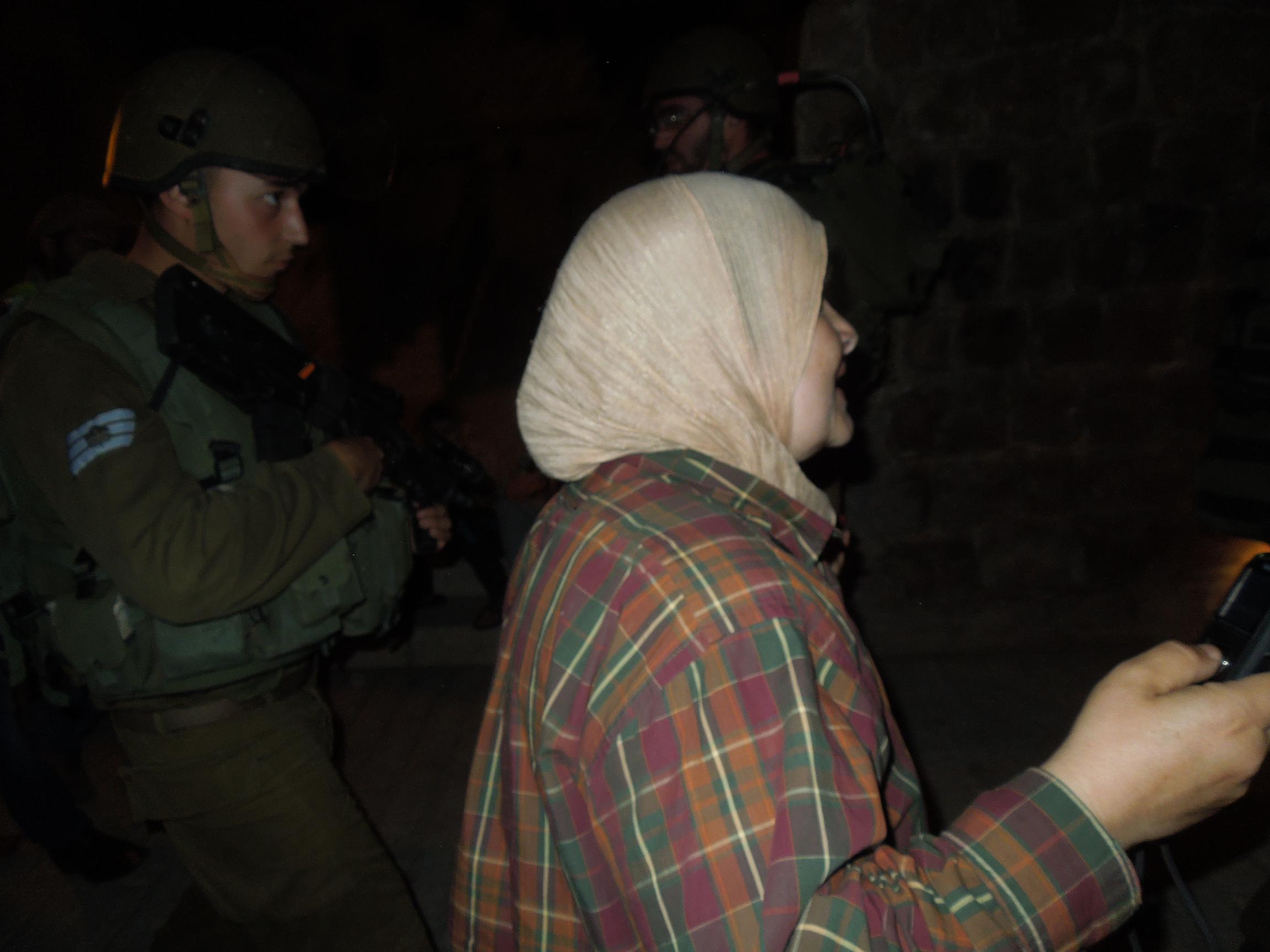Category: Press Releases
-
Expansion of Karmel settlement prevents inhabitants of Umm Al Kheer from accessing their land
9th June 2013 | Operation Dove | Umm Al Kheer, South Hebron Hills, Occupied Palestine On Saturday June 8 an old Palestinian man from the village of Umm Al Kheer, Suleiman Aid Yameen Hadleen, was detained for more than three hours by the Israeli army while affirming his right to access his own land. In…
-
Israeli forces demolish Jerusalem building, displace thirteen
29th May 2013 | Coalition for Jerusalem | Jerusalem, Occupied Palestine Israeli Forces demolished an apartment building in Beit Hanina, Jerusalem, on May 29, 2013, displacing thirteen members of the Al-Salaymeh family. Badran Al-Salameh attempted previously to obtain a permit for his two-story building, constructed in 2000, but was unsuccessful and subsequently fined a total…
-
UPDATE: Woman arrested in Hebron is accused of stone throwing by a settler
19th May 2013 | International Solidarity Movement, Team Khalil | Hebron, Occupied Palestine UPDATE: Zleikha was released from custody at around midnight, on the condition that she reports back to the police station today. During Zleikha’s interrogation, an Israeli settler was brought by the Police and asked, ‘is this the woman who threw stones at…

